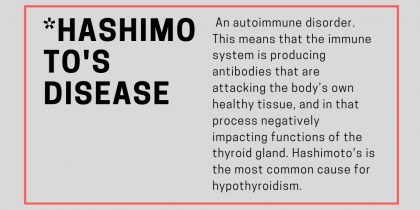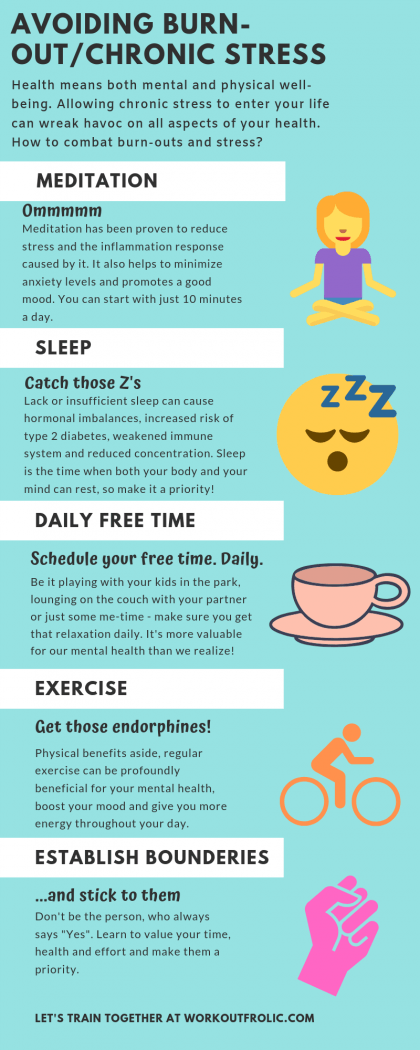Hey guys, just a heads up – this post contains affiliate links! This means that if you make a purchase through those links, I get a small commission at no extra cost to you! Thank you for supporting Workoutfrolic! Let’s get to the How to take control of Hashimoto’s Disease – 5 Simple Ways article.
I think it was around may last year when I started feeling a little (or actually – A LOT) more fatigued than usual.
No matter how long I slept, I was still feeling tired and lacking energy throughout the day. Apart from that, my mood was significantly down and I had some weird, unexplainable aches and pains throughout my whole body.
Oh, and my period was missing as well (sorry for the TMI, but I believe it’s important to mention it for the purpose of that article). To sum up – I was feeling like crap on every front – physically and mentally.
At this point, I knew this wasn’t just late spring lethargy, I was convinced that there was something serious up and I needed to find out what.
Off to the doctors I went, got blood tests done, and there it was – my thyroid marks were all messed up.
I found out I have Hashimoto’s*. Now, it’s not the end of the world, but for a drama queen like me, I might not have handled it the best way possible.
Especially for a (self-proclaimed) health nut like myself, it came as some sort of a disappointment, if that makes sense.

Anyway, after the initial overdramatization on my part, I was determined to turn things around. I did a ton of research on the topic and if you are someone with similar issues – I encourage you to do the same.
Related read to How To Take Control of Hashimoto’s Disease:
“I eat only healthy food, but I am not losing weight?!”
How to take control of Hashimoto’s disease – 4 Simple Ways
I’m not a doctor
I’ll stay away from any medical advice but I want to share with you the few tweaks I made in my lifestyle, that made a huge difference in my overall well-being and improved my blood marks significantly (without taking medication).
I believe they’ll help you too:
1. Improved sleeping patterns
That’s not groundbreaking, I know, but most of us tend to neglect how important sleep is.
Well, SHAME on all of us who stare at our phones at times when we should be sleeping soundly (preferably with a cat snuggled next to us).
Sleep has a MAJOR impact on our physical and mental health
While we carelessly relax at night, our amazing bodies carry out a whole bunch of very important functions such as cell repair, healing, fighting infections, and detoxifying. What’s more, sleep helps to keep our extremely delicate hormone balance in check.
Consistent lack of sleep leads to increased levels of cortisol (also known as the stress hormone), which in turn affects the immune system by increasing the risk of chronic inflammation and autoimmunity – for example, a disease like Hashimoto’s thyroiditis, or autoimmune hypothyroidism.
If you want to bring your health back to blooming, improving your sleep quality is one of the first places to start.
What helped me:
– Going to bed at relatively the same time each night and never sleeping less than 6.5 hours;
Yes, it’s quite the commitment, and at least for me, getting used to it was (and still is…forever will be) incredibly difficult but when your health depends on it, you do what you gotta do.
Related read to How To Take Control of Hashimoto’s Disease:
4 Ways To Avoid Unhealthy Snacking
– Drinking mint tea in the evening;
Mint can help you relax but honestly, it’s more about creating a habit that you associate with a bedtime routine and signaling your body that sleep time is coming.
– No more scrolling on the phone in bed;
The light is just disturbing and I bet we’ve all been there – you want to quickly check something and 3 hours later you have no idea where the time went.
– Whenever I can’t fall asleep, I either read a book or listen to a podcast
If you are not subscribed yet to them and you’re looking for a new podcast to listen to – check out Reply All!
Related read to How To Take Control of Hashimoto’s Disease:
10 Healthy food staples on my grocery shopping list
2. Managing Stress
Truth is, stress is everywhere today, and controlling the way it affects our mental and physical health must be a conscious effort.
The way of achieving this depends entirely on you and your personality. Self-care has become quite trendy in the past years and for a good reason.
I never thought I’d be the type of person to advocate for meditation but here I am. I was very resistant to the idea at first and I am thankful that Rafael kept insisting that I stick with it.
It takes some practice but learning to switch your mind off or control the direction in which your thoughts flow is truly a life-changing skill, especially for people struggling with depression and anxiety.
There are also a few apps out there that are truly helpful with easing into it. I’ve personally tried Headspace and I’ve been pretty happy with it.

Of course, there are plenty of other ways to tackle stress – taking walks, exercising, SPA treatments (even the ones at home), spending time in nature, etc.
The trick is to prioritize that time for yourself and stay consistent with it.
Related read to How To Take Control of Hashimoto’s Disease:
How to improve sleep with anxiety
3. Keeping track of relevant blood counts
First of all, if you are dealing with any type of autoimmune disease, I urge you to try and figure out the underlying cause of it.
Most doctors would only treat your symptoms but fail to address the problem that unlocked the autoimmune reaction in the first place.
Sure, the causes are often multiple and complex but, in some cases, at the root of it are vitamin or mineral deficiencies. Worth checking them out in my opinion!
In my case, I got tested for vitamin D, and as it turned out I was, indeed, deficient (thanks, German weather). Once aware of that, I changed my diet and supplemented it accordingly.
Another thing with an autoimmune condition like Hashimoto’s disease is that you have to constantly track your thyroid hormone levels.
I get mine checked every 3-4 months, just to make sure that I am keeping my counts under control – FT3, FT4 (the two active hormones that influence metabolism), TSH (Thyroid Stimulating Hormone), TGAB, and TPO/TPEX (autoimmune antibodies, which can prevent normal thyroid function).
This way you can track your progress and see which of the changes you did work and which don’t.
Related read to How To Take Control of Hashimoto’s Disease:
Energizing and hydrating electrolyte drink {with ginger}
4. Focusing on gut health
It’s no secret that our gut microbiome (a.k.a. all of the microbes in your intestines) and its balance are of crucial importance for our overall health and essential for our immune system.
The bad news is that it’s pretty easy to shake that fragile balance.
How?
Processed, low-quality, sugary foods and chronic stress seem to be the two biggest triggers of gut issues.
If you’re dealing with an autoimmune disorder, chances are its development is likely linked to your gut health.
Well, we talked already about managing stress, so what’s left is diet. High-protein, wholesome, and diverse diet is the way to go (in my opinion).
Honestly, I’ve never really had any major or persistent gut-related problems and I believe my diet was already pretty good (as it’s been for years now), so I didn’t have much to alter there.
The small tweak I made and my best advice for you is to incorporate more fermented foods in your menu like sauerkraut, pickles, yogurt, kimchi, etc.
It’s just the most convenient and easy way to obtain a daily dose of healthy probiotic bacteria, which improves digestion, boosts your immune system, and helps your body fight harmful microbes and yeast infections such as candida.

Related read to How To Take Control of Hashimoto’s Disease:
10 Weight Loss Myths holding back your progress
Final thoughts
Lastly, even though it goes without saying, I still want to point out that exercising and doing sports have major benefits for your health, especially when you’re dealing with an autoimmune disorder.
It helps reduce inflammation, promotes better hormone balance, and reduces stress levels. I believe this was one of my best tools in managing my symptoms and putting them to a halt.
Just stay active, my friends!
Full Disclaimer
After getting diagnosed, I started taking a bunch of supplements, which I also believe helped a ton!
All of my advice above is based on my personal experience and what helped me to bring my thyroid hormones to normal, healthy levels.
I feel confident to share it because it’s really basic stuff and it can improve the lifestyle of anyone, not just of people with autoimmunity.
That said, I still feel compelled to share with you everything that played a role in my healing, so here are the supplements I took: Magnesium, Selenium, Vitamin D, Myo-Inositol, and Zink+Vit.C.
Just remember, I am NOT a medical professional nor a doctor so, again – research for yourself, consult with your doctor (or several doctors), and decide what’s best for you!

Related read to How To Take Control of Hashimoto’s Disease:
The Best 7 Scientific and sustainable weight loss tips
Uh, that post got way too long! I hope it was at least a little bit helpful to you!
If you have any questions or anything you’d want to chat about on the topic – feel free to email me or share it in the comments below!